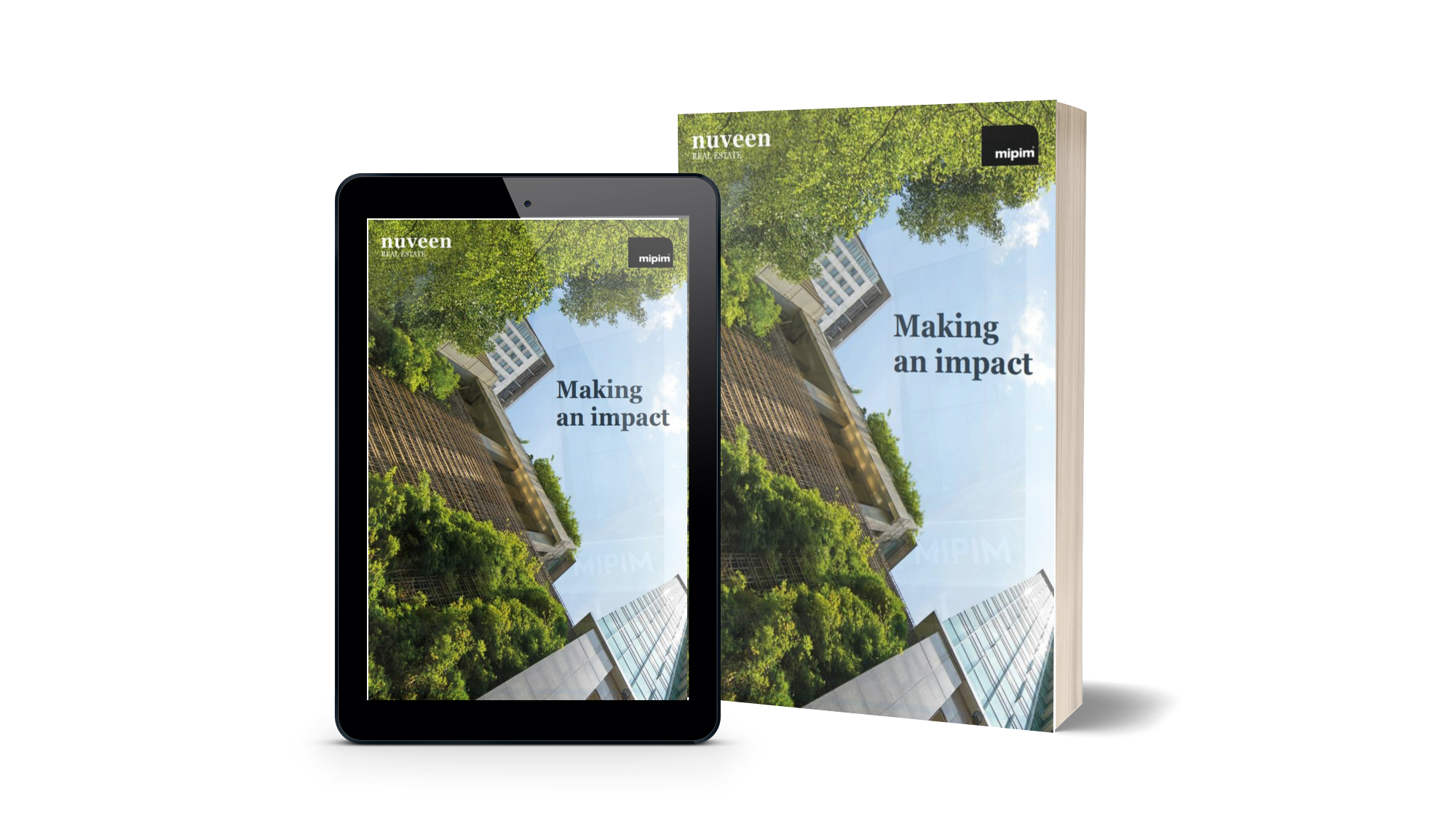We often focus on the tech itself, whether it’s AI-powered sensors in the workplace or data visualisation tools like JLL’s NXT Office, but behind every cutting-edge tech solution are the tech workers who design, deliver and analyse it.
And as today’s tech innovations transform the way real estate operates highly skilled tech talent is fast becoming the industry’s most valuable asset.

"Making an impact"- White paper
Successful impact investing in real estate
New jobs for a new time
It’s not just about hiring developers to add new features that make workplace apps more interactive, or redesign platforms to better manage real estate investment portfolios – although such roles are important to ensure real estate keeps up with the times.
Traditional real estate jobs are changing as new technology is embedded. Increasingly, real estate needs facilities managers who can keep smart buildings running smoothly and spot digital gaps to improve old systems. We need designers who can use sophisticated computer software to create 3D models.
New job roles that wouldn’t have been a blip on the radar of HR departments at traditional real estate companies 10 years ago are now in high demand. Take data scientists – they’re a must in real estate nowadays. At JLL, we now employ more than 300 data experts, and that number is growing.
We need people who can manage complex data platforms and build the right algorithms to make sense of a seemingly endless flow of numbers. We need analysts who can draw out insights so these can properly inform the decision-making process for investors buying and selling buildings and for companies looking for new space or optimising their existing workplace. And as buildings get more digitally sophisticated, we need cyber-security experts who can stay a step ahead of the hackers.
Investing for the future
It’s an area that commercial real estate is increasingly aware that it needs to invest in. Partnering with start-ups that have the potential to be game-changers is one way to access tech talent. Through our Spark business, JLL is investing in and incubating proptech start-ups that offer leading-edge products and services for both real estate investors and occupiers. The start-ups have the innovation and agility to disrupt the market, while JLL has deep real estate knowledge and the scale: together, we can bring new ideas to life in the industry.
In-house, the number of tech specialists is growing as real estate looks to their skills to drive more opportunities for business growth and deliver better value to their clients. Whether it’s recruiting bright young tech minds straight from university, attracting inspiring and experienced leaders from the tech world and crucially, upskilling existing employees to move with the digital times, tech workers are becoming a central part of today’s real estate businesses.
If the real estate industry doesn’t have people with a technology-first mindset, it risks falling behind. C-suites of many multinationals now have a Chief Digital Officer leading increasingly business critical teams. At JLL, we’ve recently hired leaders from the likes of Google and Cisco to bolster our tech expertise.
Yet real estate is certainly not alone in looking out for top tech talent; we’re competing with financial services, support services and retail – not to mention the tech industry itself, which is well known for its prestigious reputation, lucrative pay packets and workplace perks.
Plus, in a tight labour market where only a small number of people have the most in-demand skills, real estate may not be the industry of choice. However, things are changing.

"Making an impact"- White paper
Successful impact investing in real estate
Driving progress
As new technology becomes a more integral – and a more visible – part of real estate, these highly skilled tech workers will see their ideas driving tangible change in the built environment.
In the coming years we’ll see buildings with virtual passports that document their histories and operations. Facilities management will be revolutionised by the Internet of Things with smart devices all linked to a central grid and predictive maintenance the norm. Virtual marketplaces will provide on-demand services to keep buildings at the top of their game. Growing volumes of data will take location intelligence and 3D mapping to the next level.
As sustainability becomes a top priority, new proptech developments will enable us to monitor and optimise energy use and create a new generation of commercial real estate which doesn’t leave a significant carbon footprint. And in the workplace itself, AI and sensors will have a huge impact on how and where we work on a daily basis.
We’re only just starting to see what proptech means for the real estate industry. With the rollout of 5G networks and more investment flooding into proptech developments, buildings are getting smarter but they’re also getting more complex inside and out. As they do, having the right tech talent in place, both now and in the future, is essential.



